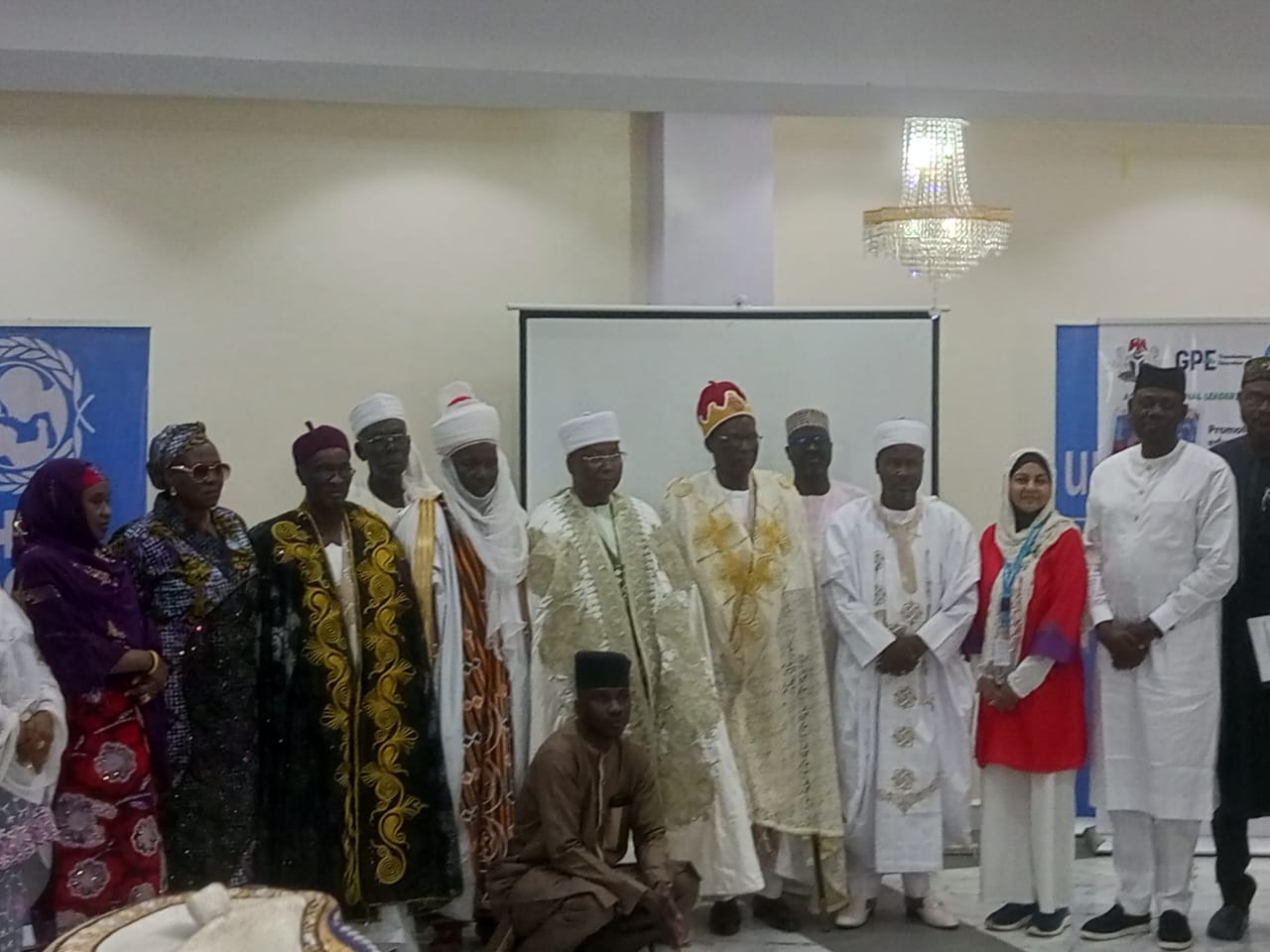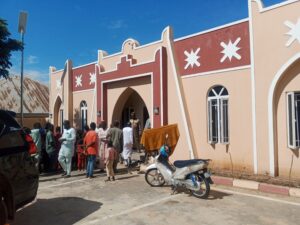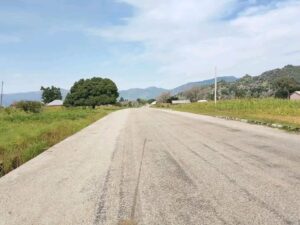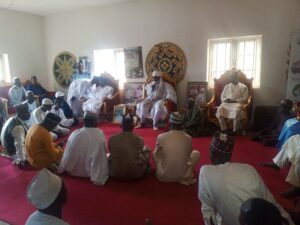
By Aliyu Abubakar Gengle
In a bid to tackle the out-of-school children syndrome and improve learning outcomes in Adamawa State, traditional leaders have been mobilised to champion education in their communities, leveraging their influence to drive enrollment, retention, and community engagement.
At a high-level meeting organized by the United Nations Children’s Fund (UNICEF), in collaboration with the Adamawa State Government and with support from the Global Partnership for Education, held at Alheri Hotel, Yola, the UNICEF Chief of Field Office, Bauchi, Dr. Nuzraq Rafique, said the event aimed to discuss ways to ensure all children attend school.
Dr. Rafique pointed out that some parents don’t understand the value of education, noting that UNICEF believes traditional rulers can play a crucial role in sensitizing them, hence their engagement.
According to her, through the Global Partnership for Education (GPE), over 18 million out-of-school children in the North East have been successfully enrolled in schools.
The Commissioner for Education and Human Capital Development, Dr. Umar Garba Pella, attributed the high number of out-of-school children in the northeast, to insecurity in the region, stressing the need for a law to make education free and mandatory for every child.
Speaking on the current state of education in Adamawa, Director of Planning, Research, and Statistics at the Adamawa State Ministry of Education, Rufus Isaiah Hanawa, said one in every three children is out-of-school.
This according to him, represents approximately 10.2 million children at the primary school level and 8.1 million at the junior secondary school level.
The director revealed that Guyuk Local Government Area has the highest number of out-of-school children in the state, with 25,000 not attending school, followed by Yola South Local Government Area.
On his part, an educationist, Dr. Muktar Ado Jibril emphasized the crucial role traditional leaders can play in promoting education in Adamawa State, urging them to help address underlying factors contributing to education deprivation, including economic constraints and harmful socio-cultural practices.
In his closing remarks, the Chairman, Yola South Local Government Area, Barrister Jibril Jimeta, thanked UNICEF for organizing the event, saying improving education aligns with his administration’s policy.
The Lamido Adamawa, Dr. Muhammadu Barkindo Aliyu Mustafa, represented by the District Head of Nyibango, assured their commitment to ensuring zero out-of-school children in their communities.
The mobilization of traditional leaders to champion education in Adamawa is a significant step towards improving learning outcomes and reducing the number of out-of-school children in the state.
With the commitment of stakeholders, including government officials, traditional leaders, and UNICEF, there is hope for a brighter future for the children of Adamawa


